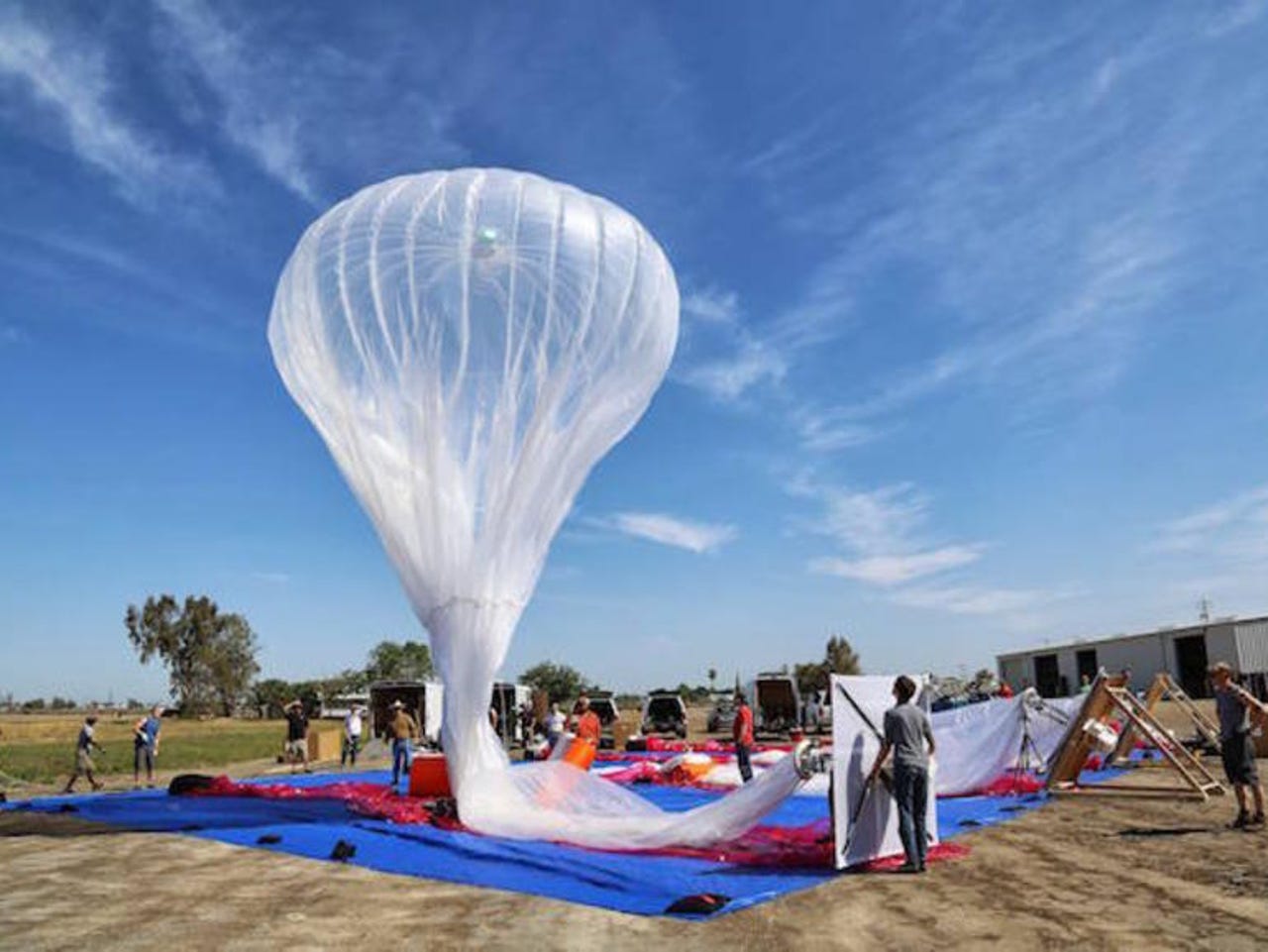Google's Project Loon: Now its internet-beaming balloon tests take off in Sri Lanka


The first of three Google Loon balloons has now drifted into Sri Lankan airspace after being launched from South America.
Google has started testing its Project Loon air-balloon beamed internet service in Sri Lanka, after striking a deal for spectrum with the government.
The first of three balloons slated for the trial drifted into Sri Lankan airspace on Monday, after being launched from South America, Sri Lanka's Information and Communication Technology Agency chief Muhunthan Canagey told AFP.
Google is expected to begin testing flight controls, spectrum efficacy and other technical issues later this week.
Sri Lanka's government announced this month it will have a 25 percent stake in a joint venture with Google, in return for allocating spectrum for the project.
The government will not be investing capital, and 10 percent of the company would be offered to phone service providers on the island.
The government signed a memorandum of understanding with Google last July for Project Loon, with the aim of boosting coverage on the island, lowering prices and increasing competition.
Service providers would be able to deliver higher speeds by using the connectivity beamed down from Google's balloons, which float about 20km up in the stratosphere.
The government hopes the project will extend coverage to the whole island, helping to boost broadband penetration. There are currently about 3.3 million mobile broadband subscriptions in, Sri Lanka, which has a population of 20 million.
Google and Facebook are trialling numerous technologies and models to extend internet connectivity to poorly-served parts of the world.
Google last year signed a memorandum of understanding with three Indonesian operators to extend coverage across the country's islands this year.
Facebook has also signed a deal to deliver broadband to rural communities in Africa via satellite. However, its controversial Free Basics plan last week hit a snag in India after the nation's telecoms regulators ruled it illegal.
Although Free Basics did offer the prospect of extending connectivity to people who couldn't afford a mobile subscription, Facebook's service was criticized for its potential to create a two-tier internet, with an open internet for the rich and a gated one for the poor.
More on Project Loon
- Google to test Project Loon in US? FCC filing points to internet balloon pilot in 2016
- Google's Project Loon to blanket Sri Lanka with internet access
- Google trials LTE in Project Loon's balloons over Brazil
- Sydney sees Project Loon drift
- As Google brings Loon to France, Ericsson CEO doubts balloon broadband will fly
- SkyBender: Now Google tests out drone-delivered 5G internet